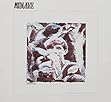A hip hop translation
I thought that it might be a good linguistic exercise to translate a particularly catchy hip hop track from back in the day. Anyone hazard to guess the song and artists behind it? Here’s a clue to get you started: It was nominated for a Grammy Award. I’ve deliberately excluded lyrical clues such as promotional utterances of record labels and nicknames.
Ferraris and Jaguars are brands of automobiles known to signify certain levels of wealth — or, at the very least, a high marginal propensity to consume. Thus, possession of these types of cars enhances my persona, especially convertibles with their tops down. Driving one of these vehicles recklessly while simultaneously shouting that money is of no substantial consequence helps to bring home the point.
Rolls Royce is another brand of automobile known to signify wealth. They should be driven aggressively while wearing flashy rings. I like the windows slightly open, implying that, unlike the Ferraris and Jaguars in the aforementioned verse, drop top Rolls Royces should be avoided. Again, I shout that money is of no substantial consequence.
I have an aversion to material goods that do not “gleam”, perhaps showing a preference for freshly painted and waxed sheet metal; chrome; gold, silver, and other precious metals; diamonds, and other gems. Price is not taken into consideration when acquiring material goods that gleam. After all, money is of no substantial consequence.
Recent forays into philanthropy consist of contributing financially to friends who are in prison. When my friends come home from prison, new cars are waiting for them. Money is of no substantial consequence to me.
Join us in flaunting our material goods. We travel all around the world, spending our money.
I wear Rolex watches, another outward sign of my material wealth. I contribute financially to my friends’ girlfriends. Perhaps “girlfriend” is too polite a word to use in this context. In any case, the amount of money that I contribute shows how much I love and care for my friends and their significant others. Do not bother praising me for these selfless actions. My income comes from many sources. I paid $100,000 for this bracelet. [Approximately $132,600 in today’s dollars.] Was it foolish of me to have purchased such an expensive piece of jewelry? Consider this: the reflective qualities of said bracelet will cause eye strain. My gun is solid platinum. Even the bullets gleam with gems and/or precious metals. You will die. Unseasoned acquaintances want to join my circle of friends and perhaps benefit from my material wealth. While I am not wholly averse to forming such associations, I prefer that my true friends possess “old money” and that their bank accounts be large. Like mine. My bank account balance is $1,000,000. [Approximately $1,326,200 in today’s dollars.] I have so much money that it fills up the trunk of my car! When I arrive at parties and such, my full trunk of money must look daunting to the average person. This is basic. I have been a free-spender since before the one hundred-dollar bill underwent a major redesign in March 1996. We have a lot of money. Where are the people who have professed hatred toward us?
One of the many benefits of “living the life” is that I get to eat cake that is thicker than the typical middle-class cake. [It’s the pudding.] In addition to eating thick cake, I eat crab while watching women dance in a suggestive manner. I do big things. My music production skills enable obscure music groups to become well-known. I am like a large dog, but instead of wearing a demeaning chain, I have a necklace — and a matching bracelet to boot! My friends admit that I am an important person — the type of person with whom any group of people would like to associate. I’m the type of person who does things that others won’t do, or are incapable of doing. I am so hot that I am hotter than a candle. For the remaining portion of this verse, I will continue to promote myself by using hyperbole. Now I will drop a Barry Manilow reference. Also, I swing every night.
A fellow rapper cannot truly be recognized until:
- One million units of his album are shipped to retailers [Unit shipments are what the RIAA uses to determine Gold and Platinum album status.]
- He enters into a relationship with a woman who sings r&b
- Said r&b woman has all the qualities that one would expect of a typical woman in her situation
Take me, for example. I entered into a relationship with a woman after she first admired my necklace. All of my jewelry is light gray — mostly platinum. Life is like a roll of the dice. Let’s play!
Note to up-and-coming MCs: It doesn’t matter if your albums merely went gold [In the US, this means 500,000 units were shipped to retailers.] or if you wear Rolex watches with diamonds and/or other gems. To get to my level of wealth, you will have to do much more. In fact, take your paycheck and double it. That’s approximately what I make. The trouble lies in the quality of your rapping. I’m a man who likes Mercedes-Benz automobiles with leather, real wood grain, and a frame that is made out of platinum. Honest! I proclaim loudly that money is of no substantial consequence. My teeth gleam from gems that my orthodontist affixed with cement. In addition, both of my wrists gleam from the assorted pieces of jewelry that I wear, including rings, chains, and bracelets. We have it made, so to speak.
Money is of no substantial consequence.

 Lennon starts off the song with “If I fell in love with you…” Fell in this context is incorrect. He had two choices — he could have used the subjunctive mood: “If I were to fall in love…” or the implied future tense: “If I fall in love…” He chose the simple past tense — when coupled with “If”, it seems as if John is uncertain about whether or not he fell. Not the intended meaning, I’m sure.
Lennon starts off the song with “If I fell in love with you…” Fell in this context is incorrect. He had two choices — he could have used the subjunctive mood: “If I were to fall in love…” or the implied future tense: “If I fall in love…” He chose the simple past tense — when coupled with “If”, it seems as if John is uncertain about whether or not he fell. Not the intended meaning, I’m sure.







